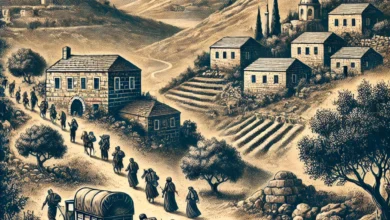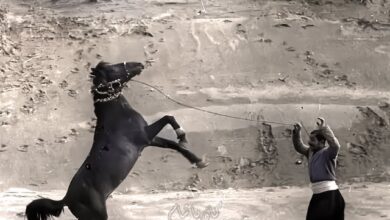Kassem Hejeij and the Symbolism of Pride in Jabal Amel’s Proverbs

In Jabal Amel, people use the proverb: “Let the mare perish rather than be returned by Balieq!” to emphasize pride and self-respect. It’s a declaration of their readiness to endure hardship as long as their dignity remains intact.
When asked about the origins and meaning of this saying, historian Kassem Hejeij, mayor of Deir Antar, shared the following story:
“A prominent figure from the village of Shhour owned a purebred mare, known for her beauty and lineage. He proudly displayed her to his peers, refusing all offers to sell or breed her, even to a stallion named Salsal. Angered by the rejection, a rival nobleman plotted to steal the mare. He ordered one of his servants to carry out the theft. The servant sneaked into the stable, leading the mare away. But when he tried to mount her, she neighed loudly, waking her owner.
The owner rushed to the stable and, upon realizing the mare was gone, was devastated. He ordered his servant to chase the thief using a white mule named Balieq. However, as the owner considered the possible tale of Balieq recovering the prized mare, he called out to his servant, saying, ‘Let the mare perish rather than be returned by Balieq!'”
Hejeij added:
“Pride and self-respect are deeply rooted in the culture of Jabal Amel. These qualities define the people of the region and their resilience. For the people of Jabal Amel, dignity and honor are non-negotiable, even in the face of adversity. They would rather endure hardship than accept help from someone dishonorable or lose their pride by lowering themselves.”



